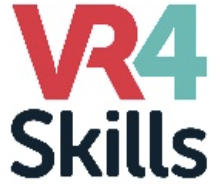
VR 4 Skills
Comprehensive Training Framework for Leaders of Internationalisation enhanced by Virtual Reality (VR) in a post-pandemic era
Background
Almost two years of COVID-19 pandemic have significantly affected the way higher education institutions and their staff operate and work. International non-academic staff and support staff have observed a significant skills insufficiency and defined certain areas of development which need to be addressed in order to better adapt to post-pandemic reality and perform more effectively in their job roles in higher education. That is why, as a result of internal meetings of Businet Internationalisation@Home working group, the partnership has put together a joint project proposal aimed at skills development of those groups who very often are an underrepresented staff group when it comes to professional training and up-skilling, which would increase their capacity to work effectively in a post pandemic era which would, in turn provide for more inclusive, more green and sustainable and digital.
The main objective:
We live in an increasingly interconnected and interdependent world, bringing with it new levels of complexity, tensions, and paradoxes. At the global policy level, the World Economic Forum uses the inclusion of technologies in education along with the quality of education policies and the management of education institutions, among the many indicators used to measure countries’ international competitiveness, through the production annually, of the ‘Networked Readiness Index’ (see Bilbao-Osorio, Dutta & Lanvin, 2013; Dutta, Geiger & Lanvin, 2015). The use of technologies in teaching and learning in higher education is increasing across the globe. With this project the partners express their interest and willingness to participate in a networked world, where each institution strives to be inclusive for their students and staff.
New devised trainings will be open for non-academic staff from different educational domains and from different nationalities, wishing to become more digitally, managerial, international, and intercultural trained. The trainings devised will be available in digital form such as a Massive Open Online Course (MOOC) or through Open and Distance Learning (ODL) via a Virtual Reality Environment. The project proposal supports the development of new trainings through a process of knowledge sharing and communication between higher education institutions and its non-academic staff. It shall be embedded into institutional policy to ensure an effective and sustainable outreach. It supports the aims and objectives of each institution on inclusion and diversity. The partnership is composed in a transversal way sharing the learnings in a next phase, to a larger group of partners from Businet.
The main purposes of the project are as follows:
- Identifying the skill gaps to acquire the necessary competencies for international administrative staff and support staff to be able to work effectively in a post-pandemic era.
- Creating a comprehensive training framework which defines quality criteria for staff members working in international education that serves self-auditing purposes for
institutions. Each partner university will work on one skill/training module. - Analyse how HEIs ensure relevant training for those staff members – include this framework into institutional HR strategy.
- Create tools and guidelines that enable staff members to understand and improve their competencies to be widely used by peer HEIs colleagues.
Partners:








